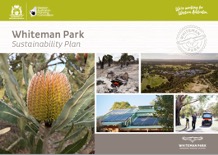Sustainability Examples of work undertaken by our staff, either solely or as a team member.
Sustainability Strategy
The University of Western Australia
The water element of the Sustainability Strategy was developed by EAW Consulting. It aimed to reduce overall water use by 10% by 2025, saving 88 ML/year (35 olympic swimming pools). The savings would be achieved through a combination of efficiencies, fit for purpose substitutions and further use of treated wastewater. The Strategy would also improve vegetation cover through local retention / detention of stormwater and improve the quality of stormwater leaving the site.

Brightwater Group
EAW developed a Sustainability Strategy for Brightwater Group, which includes aged care, retirement village, disability support, laundry and catering businesses. Energy and fuel use, waste production, water use and greenhouse gas emissions were the most significant environmental issues. The Strategy proposed initiatives to reduce impacts, including use of photovoltaic panels, storage batteries and a micro-grid, transitioning to electric fleet, compostable / recyclable meal packaging, use of environmental criteria within procurement and water leak detection.

Sustainability Plans
Whiteman Park
EAW developed a Sustainability Plan for Whiteman Park, which included a comprehensive analysis of Park issues with staff. A broad range of initiatives were identified and accepted by staff to underpin Park business planning. Initiatives include rehabilitation of degraded areas; planning for resilience to climate change; protection of wetlands from weeds, nutrient enrichment, pests and chemicals; establishing education programmes for Aboriginal heritage and sites; efficient lighting; and waste reduction.

Rottnest Channel Swim
The Rottnest Channel Swim is an iconic WA event with a consequent leadership and sustainability responsibility. EAW Consulting worked with staff and the Board to identify the main issues (fuel use and hydrocarbon emissions, waste and litter, and use of single use plastics) and propose improvement actions.